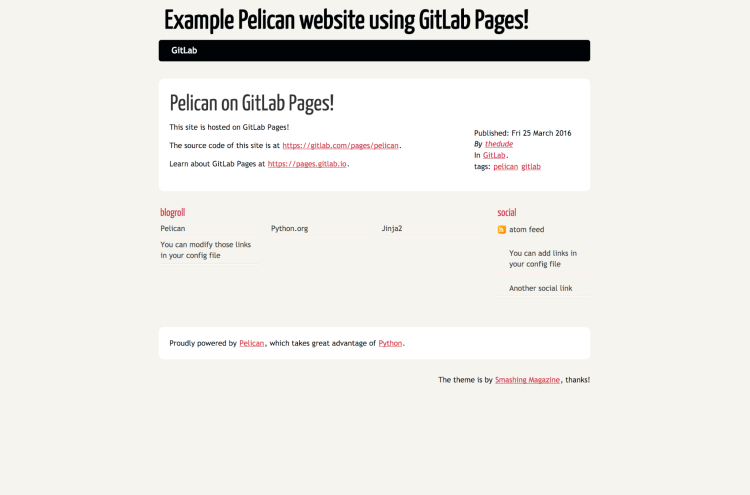GitLab, a startup that offers open source and premium source code repository software, today announced the availability of GitLab Pages code in its open source Community Edition distribution.
GitLab Pages lets people easily create and update their own websites with a number of static site generators (SSGs) such as Jekyll and Pelican. Previously, GitLab Pages was available through GitLab.com and through the premium GitLab Enterprise Edition.
Months ago, following the launch of GitLab Pages, people began requesting that GitLab Pages be added to Community Edition as an open source tool that anyone could run on a server, free of charge. At first, the corporate response was no, because it was not seen as relevant for teams under 100 people. But the demand continued, and ultimately GitLab relented.
The team ran into “unforeseen challenges” while squeezing GitLab pages into the Community Edition and ultimately delayed the delivery of the software, GitLab vice president of product Job van der Voort announced to GitLab users in January. But now it’s out, as part of GitLab version 8.17. “Static websites are much faster than their dynamic counterparts (CMS), this makes them great for high volume public marketing and documentation sites or even as a way to easily visualize data from your continuous integration suite,” van der Voort wrote today in a blog post.
June 5th: The AI Audit in NYC
Join us next week in NYC to engage with top executive leaders, delving into strategies for auditing AI models to ensure fairness, optimal performance, and ethical compliance across diverse organizations. Secure your attendance for this exclusive invite-only event.
GitHub, whose source code repository software is more popular than GitLab’s, offers GitHub Pages for free and premium users, but it’s not available as open source software that people can take and run on their own.
Documentation is here.

